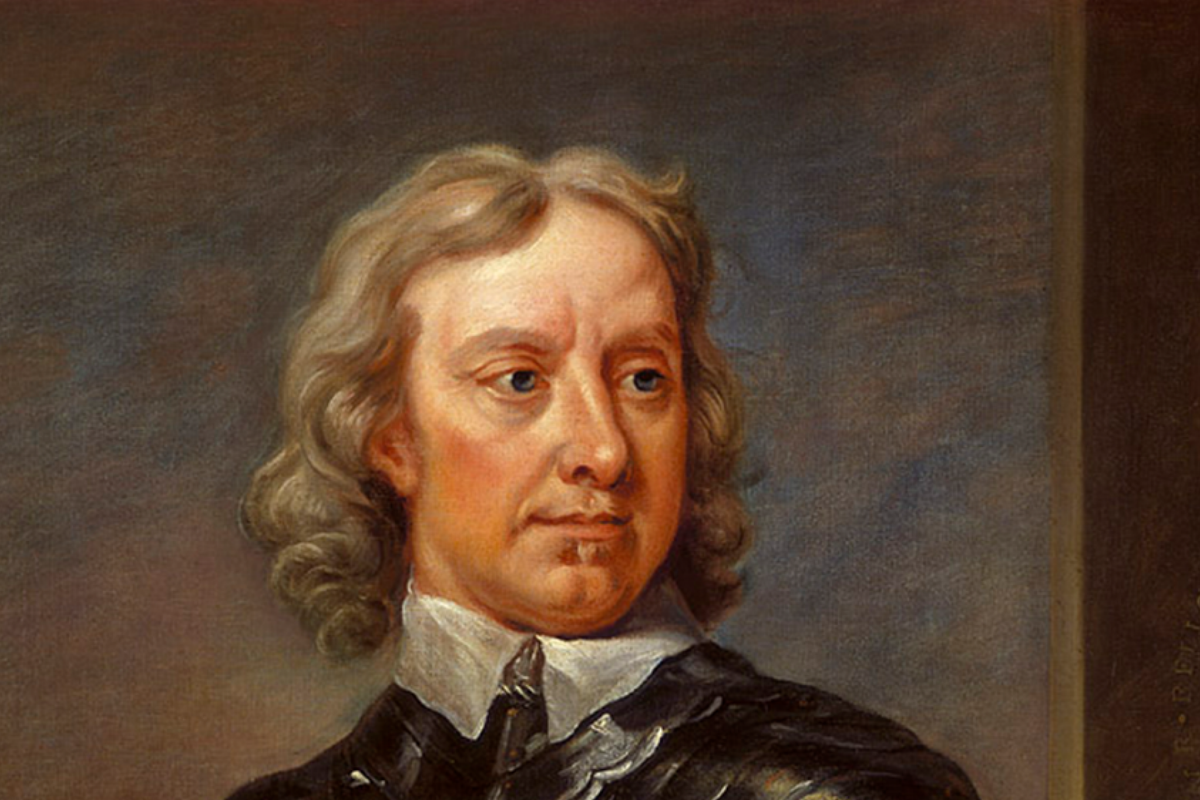Oliver Cromwell: Beheaded
Oliver Cromwell was executed two and half years AFTER his death!

Key words
- Puritan: a member of an English religious group in the 16th and 17th centuries who wanted to make church ceremonies simpler
During the 17th century the Puritans destroyed many decorations in English churches.
- Militia: a military force that operates only some of the time and whose members are not soldiers in a permanent army
A UN force was sent in to stop fighting between three rival militias.
- Instrumental in: If someone or something is instrumental in a process, plan, or system, that person or thing is one of the most important influences in causing it to happen
She was instrumental in bringing about the prison reform act.
- Precedent: an action, situation, or decision that has already happened and can be used as a reason why a similar action or decision should be performed or made
There are several precedents for promoting people who don't have formal degrees.
- Posthumously: after a person's death
He died in battle and was posthumously awarded the Medal of Honor.
Read to find the answers
- Which way of life did Oliver Cromwell embrace?
- What did he believe had not gone far enough?
- Who did he execute?
- What happened after he died?
Oliver Cromwell
Oliver Cromwell was born in Huntingdon in 1599 and remained relatively unknown until the English Civil Wars. He initially made his living as a small landowner, but his spiritual awakening led him to embrace the Puritan way of life at a time of extreme political and religious unrest in England.
He was elected to Parliament for Huntingdon, believing that the Reformation had not gone far enough and that Catholic beliefs and practices needed to be completely removed from the Church.
Military Role
Cromwell's only military experience was in the local militia but he gained experience fighting battles in East Anglia and soon became a Colonel. He continued to rise through the ranks and was instrumental in the creation of the New Model Army. Cromwell's military successes meant that his political influence had greatly increased and he shared the belief that the only way to stop the civil wars was to execute King Charles.
After the King's execution, the monarchy was replaced by the Commonwealth of England. Cromwell led English military campaigns to gain control of all the British Isles, resulting in the Commonwealth of England, Scotland and Ireland. Lingering resentment over his treatment of Irish Catholics still shapes the religious and political landscape of Ireland today.
Under Cromwell, England pursued an aggressive foreign policy, the navy was strengthened, and England fought successfully in conflicts such as the Anglo-Dutch Wars.
Political Role
Cromwell became Head of State with the title of Lord Protector. He rejected Parliament's offer to become king, preferring to describe himself as a 'constable or watchman' of the republic. He introduced the first written constitution in English history, the Instrument of Government, which attempted to balance authority between the executive, legislative, and military branches.
As Lord Protector, Cromwell held executive power and ruled with the help of a Council of State, a body of advisers with legislative powers who acted much like today's Cabinet, and there was a regular Parliament with elections every three years.
He allowed various Protestant sects to worship openly, but continued to restrict Catholics, excluding them from positions of power.
Death
After the death of Cromwell, the lack of a clear leader for the Commonwealth led to the restoration of the monarchy under Charles II. In 1661, Oliver Cromwell's body was removed from Westminster Abbey to be posthumously tried and 'executed' for high treason. The body was beheaded, then thrown into a common grave and the head placed on a twenty-foot spike at Westminster Hall, where it remained for years until the spike broke and the head fell to the ground below.
Discussion questions
- Do you have any questions about any of the vocabulary or grammar in this article?
- What kind of government does your country have?
- Has your country ever had a civil war?
- Has anyone ever been put on trial posthumously in your country?

Book a Lesson
Improve your English language communication skills by practicing with a qualified and experienced native speaker.





